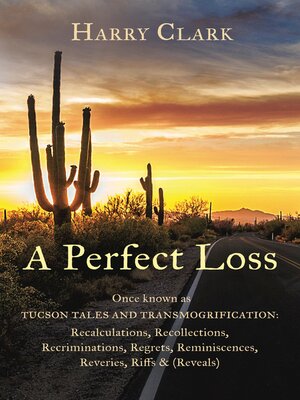
Sign up to save your library
With an OverDrive account, you can save your favorite libraries for at-a-glance information about availability. Find out more about OverDrive accounts.
Find this title in Libby, the library reading app by OverDrive.



Search for a digital library with this title
Title found at these libraries:
| Library Name | Distance |
|---|---|
| Loading... |
This fictional memoir is the author's effort to recapture the kaleidoscopic impressions of his childhood, his neighborhood, his school, family and friends, and the loss of each.
Returning to Tucson, his familial home some forty years past, Clark begins to dream of "B Street," the solitary block where he lived and attended both junior and senior high school. This was his universe before an abrupt departure the summer of 1965, never again to see his friends left in his wake. Not one to readily recall dreams, his vivid, nightly recollections are due in great part to intimations of his mortality, brought on by a battle with Stage III melanoma. He first deals with "B Street" and the abandonment in his play The Combination. This, however, does not delve into his entering the existential abyss, the ebon void, his sophomore and junior year, nor assuage his guilt about his, seemingly, indifferent interactions with friends who lost family due to suicide or murder. And why those repeated dreams about a "B Street" murderer, Mitch B., who lived but a few doors up on the same side of the street? And why does his family not talk of the deaths and suicides happening about "B Street?" And why does he spend more time with the one kid on the street he really cannot tolerate, Roy, huddled over their coin collections, their bullfighting memorabilia, conjecturing on levitating canary cages, obsessing over imperfect baseball cards and perfect games? And whatever happened to Roy's brother, Mikey, his best friend, his inseparable? All these figures come back nightly to inhabit him, as does this once small town of alley and desert freedoms. And because he cannot explain all that transpires he seeks out an attorney who once defended murderer Mitch B, and who lived but a block or two from "B Street." The attorney, too, has his say about Mitch B, "B Street," the author. The author and the attorney never, to their recollection, know of one another as kids, only adding another why, the improbability of such, another near "perfect loss."







